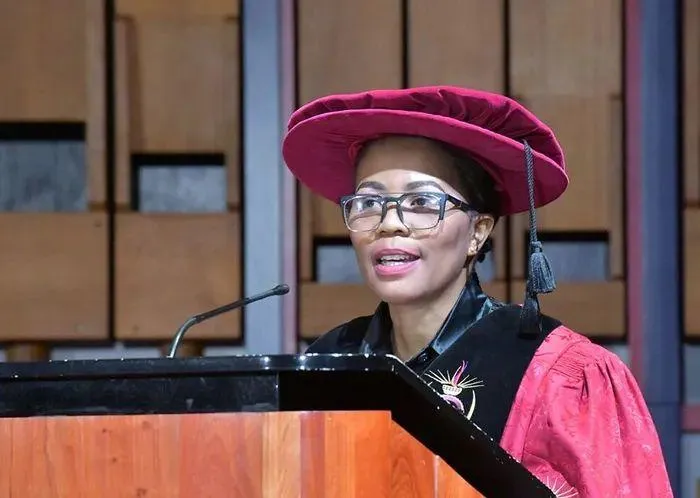
This landmark event was championed by Unisa’s Principal and Vice Chancellor, Professor Puleng LenkaBula, and put together by Professor Thomas Pooley, Acting Director of the Unisa Music Directorate.
Image: Supplied
The University of South Africa (Unisa) hosted its inaugural African Music Festival over the weekend at its main campus in Pretoria offering a unique celebration of Africa’s rich musical heritage during Heritage Month.
For many South Africans, Heritage Month has lost some of its original meaning, with many unsure how to truly celebrate the country’s diverse cultural roots. Unisa’s festival broke new ground by presenting musical traditions that span over 300 years, reconnecting audiences with ancient African sounds and instruments.
The festival showcased a rich array of indigenous music forms, highlighting traditional bowed instruments, balafons, marimbas, and other percussion and string instruments from across the continent.
This landmark event was championed by Unisa’s Principal and Vice Chancellor, Professor Puleng LenkaBula, and put together by Professor Thomas Pooley, Acting Director of the Unisa Music Directorate.
“Teachers don’t know how to teach African music because they don’t know it,” Professor Pooley told The Star.
“So there is work to do in that area. We provide both the theory and practice of African music drawn from across the continent. We are the only institution that offers African music from undergraduate to postgraduate level as a compulsory subject.
''Some of the instruments played here tonight are the oldest instruments known to man, so this is an important event for academia, for heritage and for the country.”
The opening night featured South African bow music expert Dizu Zungula Mzikantu Plaatjies, followed by performances from Cara Stacey, Mpho Molikeng, Sazi Dlamini, and Evans Netshivhambe, showcasing bows from Southern Africa. Burkina Faso-born Adilia Yip performed on the balafon and concert marimba, while Ghanaian American Mark Stone showcased the gyil, a traditional Ghanaian xylophone.
South African musicians Bronwen Clacherty and Keketso Bolofo rounded out the evening with vibrant marimba pieces. The festival’s highlight came on the second night, headlined by Mamadou Diabaté, a renowned Burkinabe Austrian balafon virtuoso performing with his band Percussion Mania.
Born into a family of traditional musicians from the Sambla ethnic group, Diabaté began training on the balafon at the age of five under his father, Penegue Diabaté, a master balafon player. Over the years, Diabaté has won numerous awards including Burkina Faso’s National Order and Best International Artist, and released several albums preserving traditional Sambla and Tusia music.
Other performers included Uganda’s Buganda Music Ensemble, Mozambique’s Chopi Timbila Orchestra, and South Africa’s Thandeka Mfinyongo Band, creating a vibrant and truly pan African musical experience.Students and attendees described the festival as eye opening and deeply enriching.
“I had never seen a timbila orchestra live before,” said a Unisa postgraduate student. “Experiencing these instruments in an academic setting gave me a deeper appreciation for their cultural significance.”
Another attendee praised the event for treating indigenous African music with the same respect traditionally given to classical or popular genres.
The Unisa African Music Festival positioned the university as a leader in integrating African music into higher education. While much music education often centres on Western traditions, Unisa’s focus on African instruments and Indigenous Knowledge Systems signals a commitment to reclaiming and celebrating Africa’s intellectual and artistic heritage.
The festival also served as a prelude to the 2025 Unisa Vice Chancellor’s Concert scheduled for 4 October, featuring acclaimed South African artists Simphiwe Dana, Phumeza Matshikiza, and pianist Megan Geoffrey Prins performing alongside the Johannesburg Philharmonic Orchestra.